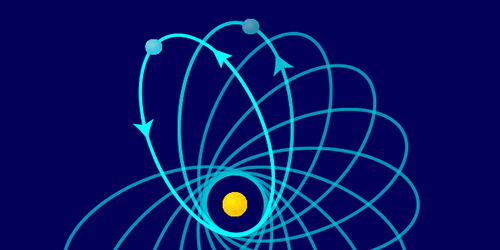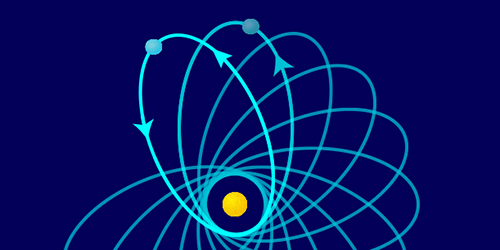Revised Prediction for Mercury’s Orbit
Mercury’s orbit of the Sun isn’t fixed in space. Every 625 years, the ellipse shifts by 1∘ because of its gravitational interactions with the planets and the Sun. Now Clifford Will from the University of Florida, Gainesville, has used the general theory of relativity to calculate the impact of indirect gravitational forces—such as the pull between the Sun and Jupiter—on Mercury’s orbit. He predicts that these additional forces add 1∘of rotation to Mercury’s orbit every two billion years. Though tiny, and currently not measureable, this correction should be detectable by BepiColombo, a European and Japanese mission to Mercury scheduled to launch at the end of this year.
If Mercury were the only planet in the Solar System, its path around the Sun would stay fixed in space, according to Newtonian physics. But Mercury isn’t alone, and its Newtonian gravitational interactions with the other planets shift its orbit by 0.15 degrees per century (deg/cy). In addition, as Einstein famously predicted, general relativity affects the Sun-Mercury attraction and adds another 0.01 deg/cy to the planet’s orbital precession.
But the influence of the Sun doesn’t stop at Mercury. General relativistic effects of the Sun extend throughout the Solar System and alter the tug each planet exerts on Mercury. The theory also modifies the direct gravitational attraction between the planets and Mercury. Finally, the so-called gravitomagnetic force—a general relativistic effect of moving masses that is analogous to the magnetic force—also perturbs Mercury. Will predicts that these previously ignored effects should increase Mercury’s precession rate by about 6.2×10−8 deg/cy.
This research is published in Physical Review Letters.
–Katherine Wright
Katherine Wright is a Contributing Editor for Physics.





